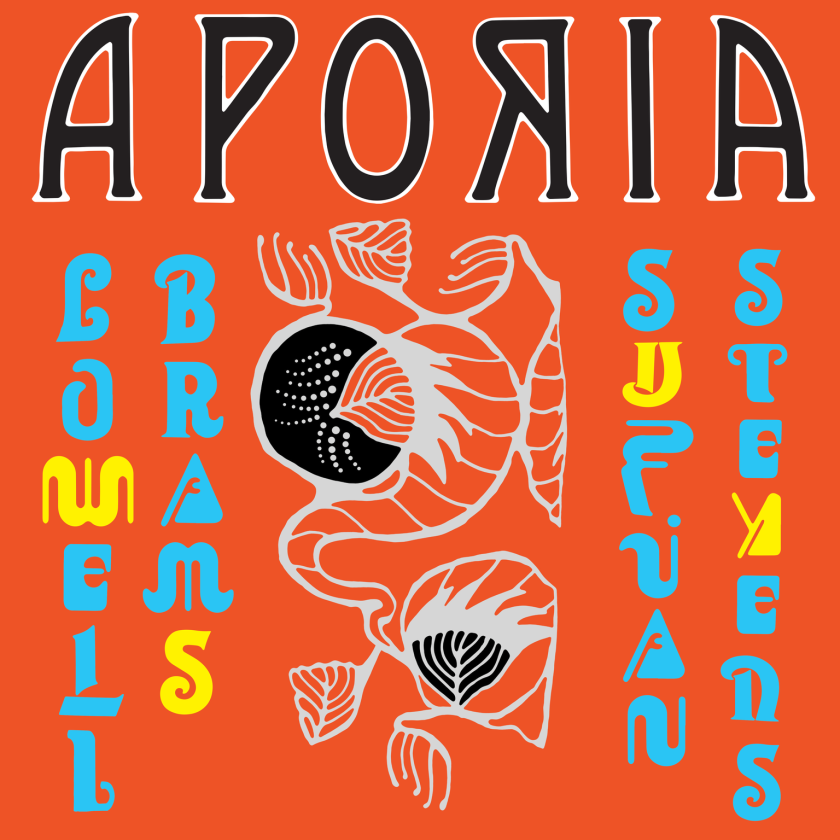Sufjan Stevens is an immensely creative musician – a multi-instrumentalist, songwriter and composer. His work ranges from sophisticated dreamy pop that has influenced many, not least Bon Iver to grandiose and sometimes disturbing soundscapes. He grew up with a kind and passionate step-father, Lowell Brams, who inspired in Sufjan a wide-ranging musical curiosity, which is reflected in the stylistic variety of his work.
A few years ago step-father and son collaborated on a decidedly weird album, Music for Insomnia: it was as far from easy listening as Stevens’s solo recordings came close to being mainstream user-friendly. “Aporia” finds them collaborating again, and the work, put together slowly and with a devotion to exploring the unknown, is much more accessible, while remaining in a genre of its own – that is in no genre at all.
Sufjan Stevens has always been adventurous as well as enjoying collaborations – with writers, filmmakers and choreographers. He thrives on interaction, and this openness has resulted in music that is never predictable. Aporia is no different – a kind of suite of short and longer, mostly instrumental tracks, each of which tells a story without words, with changes of mood from serene to disturbed as on “Afterworld Alliance”. Vocals – so much a mainstay of Sufjan Stevens’s work - provide a welcome addition to “The Runaround”. His collaborators include friends such as drummer James McAlister from The National and keyboard / trombone player Steve Moore from the experimental indie band Sun O))).
This is an album full of hidden riches, many of which are only revealed through repeated listening. It is clear that Brams and Stevens had a great deal of fun working together, playing with the possibilities of mood and the textures afforded by a range of Prophet synthesisers, sculpting soundscapes that are sometimes bewitching or bizarre and at others – as on “Climbing the Mountain” - overflowing with a sense of peace that is as contagious as it is healing.















Add comment